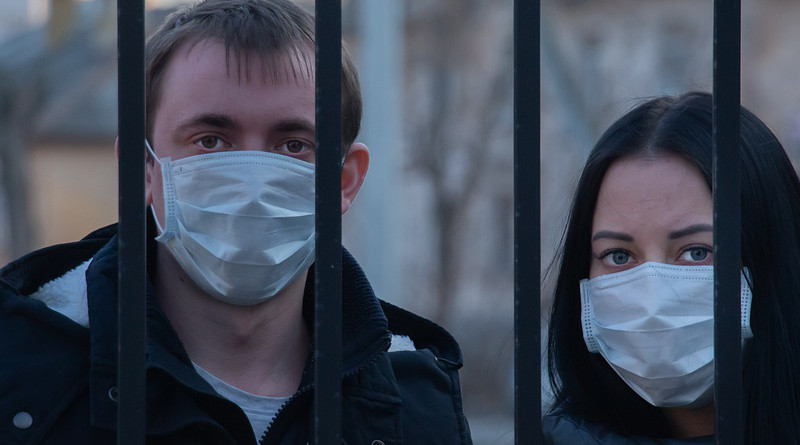The ‘Dark Winter’ Of COVID-19 Is Here – Analysis
The “Dark Winter” of the coronavirus disease (COVID-19) has arrived, as was predicted in February during the early stages of what was clearly going to be a multi-year pandemic. Yet instead of adopting a coordinated, proactive approach from the start, the global reaction to the health crisis has been a jumbled free for all.
Vaccines are in advanced stages of development in a number of countries, and when they are approved for use they will require special logistical support. In the US, where COVID-19 infections are spreading out of control in many places, President-elect Joe Biden and his team are putting together their strategy for getting through the Dark Winter.
What is the Dark Winter, exactly? It is the name given to what is expected to be a challenging period that has just started and will require from the public levels of stamina and patience unheard of in modern times.
The first lockdowns, in March, shuttered restaurants, shops and many other public spaces. Many people had to stay at home. Jobs and relationships were changed or destroyed. Protests and violence erupted over arguments about what we should do and what we should not.
The infection rate dropped during the summer months, only to escalate dramatically in the fall — after many epidemiologists had predicted just such an uncontrolled surge in COVID-19 cases by the winter.
Data indicates that the first wave of COVID-19 peaked in the US on April 10, when 31,709 daily new cases were recorded. The number remained fairly steady, slightly below that peak, until June. At that point, the number of infections began to rapidly increase, peaking on July 19 with 66,690 daily new cases. By the start of November, a third surge began, hitting a high of more than 190,000 new cases a day.
Growing numbers of people are becoming infected, and we are once again entering a period of “care rationing” because hospitals are struggling to cope with the number of seriously ill patients. This does not only affect people with life-threatening COVID-19 symptoms; surgical procedures and treatments for other conditions and diseases are being postponed or canceled. The true cost in terms of damage to health and loss of life caused by the burden that has been placed on healthcare providers will only become apparent in the years ahead.
The prospect of an expansion of the use of field hospitals or other temporary medical facilities, in tents or other buildings, is part of this Dark Winter landscape. In addition, the doctors, nurses and other healthcare providers who have been working tirelessly on the front lines of this health crisis will once again be called on to go above and beyond the call of duty to help people. There are serious questions about burnout and other human factors affecting these professionals as time goes on and the pathogen continues to spiral out of control.
Remember, none of the vaccines under development are 100 percent effective. That is a dark thought.
The most painful period of the Dark Winter is rapidly approaching. Beloved American traditions such as gathering the family together around the table at Thanksgiving or Christmas, and packed religious services in places of worship have been canceled as a result of new lockdowns and the return of stringent social distancing measures.
Breaking those lockdowns, even with the best intentions of spreading joy and happiness among friends and family members at large gatherings, will only bring suffering to some of them weeks later.
The Dark Winter will be a repeat of the misery experienced earlier this year but on an even greater scale. As the holidays approach, especially Christmas and New Year, major retailers are trying to provide scheduled shopping days to reduce the risks to customers. Despite the precautions, however, the holidays are highly likely to be super-spreader events as millions of people converge on indoor retail spaces.
The numbers of people in the US who were already clearly ignoring COVID-19 precautions ahead of this week’s Thanksgiving holiday suggests that the surging spread of the pathogen will result in very dark days indeed by Christmas. The Dark Winter could mean the deployment of US military personnel to handle morgue duties as hospitals are overwhelmed, with bodies piled up in refrigerated trucks due to the high number of corpses. That reality is already happening in Texas.
Now that the colder weather has arrived, people are spending more time indoors, and we know COVID-19 spreads more effectively when people are in close proximity in enclosed spaces.
The Dark Winter will have a catastrophic effect on mental health. “COVID fatigue” is setting in because people are tired of social distancing and wearing masks. This growing tendency to ignore precautions across communities and within households adds to the coming darkness. This is not only an American phenomenon; it can be seen around the globe.
The Dark Winter will also bring more economic damage and pain, and food lines are likely to grow. Many analysts predict that it might be at least 2024 before economies recover.
There is therefore a need now for individuals to prepare and take personal responsibility to minimize the effects of the coming storm. The Dark Winter is here. We are not yet rounding the corner with this virus. The situation that Biden has inherited is dire, and efforts to reverse the damage are likely to occupy the bulk of his first term.

